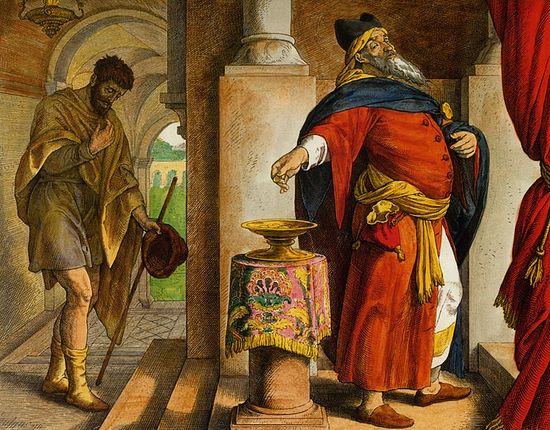
THEME: WHOM YOU KNOW?
READINGS: Sirach 35:12-14, 16-18/ 2 Timothy 4:6-8, 16-18/ Luke 18:9-14
30th Sunday in Ordinary Time
Not too long ago, a young friend recounted an ordeal his driver and himself went through at the hands of some policemen. When other road traffic offenders were literally on their knees pleading for mercy and willingly giving bribes, he refused to do so. He remained in a calm disposition throughout the hours they spent at the police station and opted to appear in court. A police officer noticing the disposition of my friend asked him: ‘who do you know?’ Having just returned from abroad after several years, my friend was baffled by the question. So the policeman had to clarify the question before my friend answered: ‘I do not know any big man.’ ‘Why are you behaving this way if you do not know any big man?’ the policeman retorted!
The policeman’s first question (who do you know?) indicates his fear of a reprimand from a ‘big man’ in society. The question also indicates that in today’s Ghanaian society ‘whom you know’ counts a lot. Sometimes to gain an admission to a school, to obtain a scholarship, to be employed, to secure a visa, etc. ‘whom you know’ may be of great help. On the contrary, the message of today is that God deals with us impartially, and not according to whom we know, for there is no one bigger than God; He is not afraid of anyone and no one can influence Him. Thus, the first reading says: ‘the Lord is the judge, and with Him is no partiality. He will not show partiality in the case of a poor man …. He will not ignore the supplication of the fatherless, nor the widow when she pours out her story’ (Sirach 35:12-14).
In other words, the poor, orphans and widows who do not know any ‘big man/woman’ can also enjoy God’s favours and blessings, because He is just and impartial. On the other hand, all ‘big men/women’ are ‘small’ before God; and so those among them who are aware of this and do approach Him in humility shall also enjoy His blessings. Thus, whether we are small or big men/women in this life, we should approach the Lord with humility.
In the light of the above, the first reading tells us about the effectiveness of the prayer of the humble person: ‘the prayer of the humble pierces the clouds … until it reaches the Lord; he will not desist until the Most High visits him, and does [him] justice …. And the Lord will not delay’ (Sirach 35:17-18).
If faith is seen as a vehicle that conveys our prayer into God’s presence, then humility is the fuel for the vehicle of prayer. In this sense, the humbler one is the more fuel he/she has to push his/her prayers beyond the clouds to the very presence of God. And this is the meaning of the parable Jesus told in the gospel reading: because of the humility of the tax collector, his prayer was heard by God. The Pharisee, however, though he had faith in God, lacked the fuel of humility, and so his prayer was not answered. Instead of making himself ‘small’ before God, he approached God as a ‘big religious man’, boasting: ‘God … I am not like other men, extortionists, unjust, adulterers, or even like this tax collector. I fast twice a week, I give tithes’ (Luke 18:11-12). Because he approached God as a ‘big man’, the Pharisee returned empty handed – God made him small: ‘for everyone who exalts himself will be humbled, but he who humbles himself will be exalted’ (Luke 18:14).
Beloved, being the son or daughter of a big man/woman or even of the president of the nation may not count when we approach God in prayer. What counts, besides perseverance and faith (as we learnt last week), is humility! So, let us approach the Lord with humility by showing that we do not merit His favours, by acknowledging our nothingness, and by confessing our sins – and this will powerfully fuel our prayers into His presence! Amen!
By Very Rev. Fr. John Louis
